*Note: The questions I submitted Gates Foundation are at the bottom of the article.
** Wikipedia defines cyberstalking as:
Cyberstalking is the use of the Internet or other electronic means to stalk or harass an individual, group, or organization. It may include false accusations, defamation, slander and libel. It may also include monitoring, identity theft, threats, vandalism, solicitation for sex, doxing, or blackmail.
In a recent turn of events highlighting the intersection of philanthropy and medical research, we sent an urgent email to members of the Bill and Melinda Gates Foundation (BMGF) two weeks ago in anticipation of a story I was doing regarding Gates Foundation’s undisclosed relationships with clinical trial researchers.
The email, dated January 28, 2025, raised critical questions about the foundation's involvement in clinical trials concerning hydroxychloroquine (HCQ) during the height of the global response to the COVID-19 pandemic. Despite the pressing nature of the inquiry, the BMGF did not respond, although they did track me online, with evidence of their visit to his website captured by web trackers.
The first site they visited was based on my email address. You can tell because they have their own ISP.
A few days later, I got another hit to my Broken Truth website.
My email was directed to several key figures at the foundation, including Peter Dull, known for his expertise in vaccines, asking for clarity on several points that touch upon ethics, transparency, and potential conflicts of interest in medical research:
Selective Engagement in Research: I questioned the criteria used by the BMGF for choosing which clinical trials to engage with on a continuous basis, especially those involving HCQ. He highlighted the disparity in communication where some researchers were contacted once, while others enjoyed an ongoing, confidential relationship.
Funding and Influence: He specifically inquired about a significant donation of $3.2 million to the University of Minnesota, aimed at finding scalable treatments for COVID-19, questioning the influence of such a large financial contribution on smaller or new researchers.
Conflict of Interest: The involvement of Peter Dull with Dr. David Bouleware's research on HCQ prophylaxis was under scrutiny, particularly since the foundation was also heavily invested in vaccine development at the same time.
Ethical Concerns: I pressed for an explanation of a statement made by Dull in an email to Bouleware, which seemed to trivialize the gravity of the ongoing global health crisis by suggesting "the fun begins (continues)" after results showed no efficacy of HCQ.
Transparency and Whistleblower Claims: Questions were also raised about the foundation's response to a whistleblower complaint to the IRS regarding their tax-exempt status and whether they would release all relevant emails to the public to dispel any concerns over their research involvement.
Political Influence: Lastly, I sought comments on allegations that BMGF had funded efforts against Robert F. Kennedy Jr.'s nomination for U.S. Department of Health and Human Services Secretary, a role that could have direct implications on public health policy and research focus.
The lack of response from the Gates Foundation to these pointed queries has fueled further speculation and debate regarding the accountability and transparency of one of the world's largest private charities in influencing medical research. This silence is particularly striking given the foundation's alleged commitment to transparency, especially in areas where public health and significant financial interests intersect.
The controversy isn't just about hydroxychloroquine; it's about the ethical conduct in medical research, the potential for undue influence by large donors, and the broader implications for public trust in science and health policy. The foundation's visit to my websites suggests an acknowledgment of the inquiry, but without a public statement, the questions remain unanswered, leaving room for speculation and concern among those who follow the intersection of philanthropy, science, and public health.
The absence of a response from the BMGF should lead to further public discourse on the responsibilities of private foundations in global health initiatives. This situation underscores the need for clear, ethical guidelines and perhaps more stringent oversight on how research funding is managed and reported, especially when it involves treatments that have been at the center of global health debates.
But also…is stalking journalists standard operating procedure for multi-billion dollar organizations?
Questions Submitted to Gates Foundation
From: John Davidson <john@magicfeatherinc.com>
Subject: Time Sensitive: Inquiry Regarding Gates Foundation for Upcoming Articles
Date: January 28, 2025 at 3:35:00 PM PST
To: Gates Foundation (addresses redacted)
Dear Peter Dull and Gates Foundation staff,
We have an upcoming article regarding the Bill and Melinda Gates Foundation’s undisclosed involvement in clinical trials.
We have a few questions for you.
According to the Association of Clinical Research Professionals Code of Ethics and Professional Conduct, researchers are encouraged to "publicly disclose relationships and potential conflicts of interest in publications" and "avoid dual relationships that could impair professional judgment”.
1. What was your criteria for ongoing engagement in clinical trials regarding hydroxychloroquine? Some clinical trials researchers were contacted once and never again, while others indicate you had an ongoing “closed and confidential relationship.”
2. Who was your contact at the University of Minnesota regarding the $3.2 Million donation "to provide effective, accessible, scalable treatment for covid-19”.
3. What effect does such a large medical benefactor as The Bill and Melinda Gates Foundation have on small or new researchers whose clinical trial results could negatively impact your organization’s investments in other areas of public health?
4. Why was Peter Dull, a vaccine expert, closely involved in Dr. David Bouleware’s prophylaxis research when Gates Foundation was devoting significant efforts towards vaccine research and development in 2020?
5. Does TBMGF have any statement regarding the current whistleblower complaint to the IRS regarding your current tax-exemption status in Miami?
6. In an email to David Bouleware on June 3, 2020, in response to Dr. Bouleware’s study claiming results showed no efficacy for HCQ on COVID-19, Peter Dull stated:
“Now the fun begins (continues).”
Considering the global trauma occurring across the planet at the time that was written, what did that statement mean?
7. Why did the Gates Foundation seek ‘closed and confidential’ relationships with researchers in regards to Hydroxychloroquine?
8. Would you be willing to release all emails from TBMGF staff from 2020 to the public so that any concerns about your foundation’s involvement in clinical trial research can be alleviated?
9. Do you have a comment on the latest allegations that your organization funded in part the effort to block Robert F. Kennedy’s nomination for HHS secretary?
We will be publishing our story in approximately 48 hours.
Thank you,
John Davidson
A new update to our award-winning documentary “Epidemic of Fraud” was recently posted. Learn how the people who helped bring fentanyl to the market tried to convince the American people that a drug similar to tonic water was deadly. With new updates, statistics and retractions sprinkled throughout, it’s a movie anyone concerned with medicine and policy should see.
Watch now.




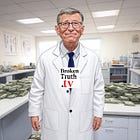
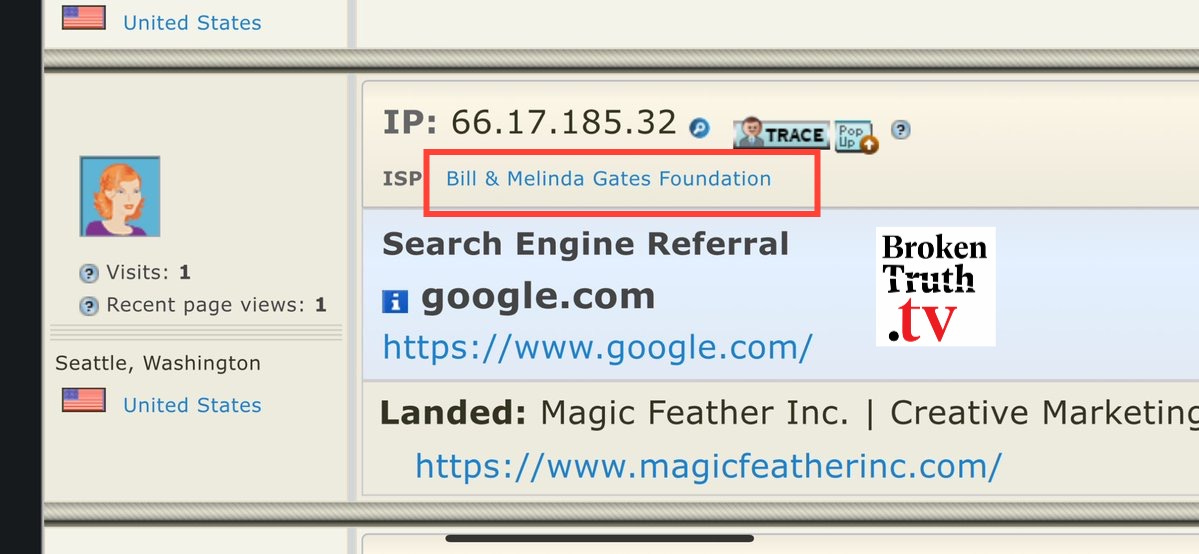
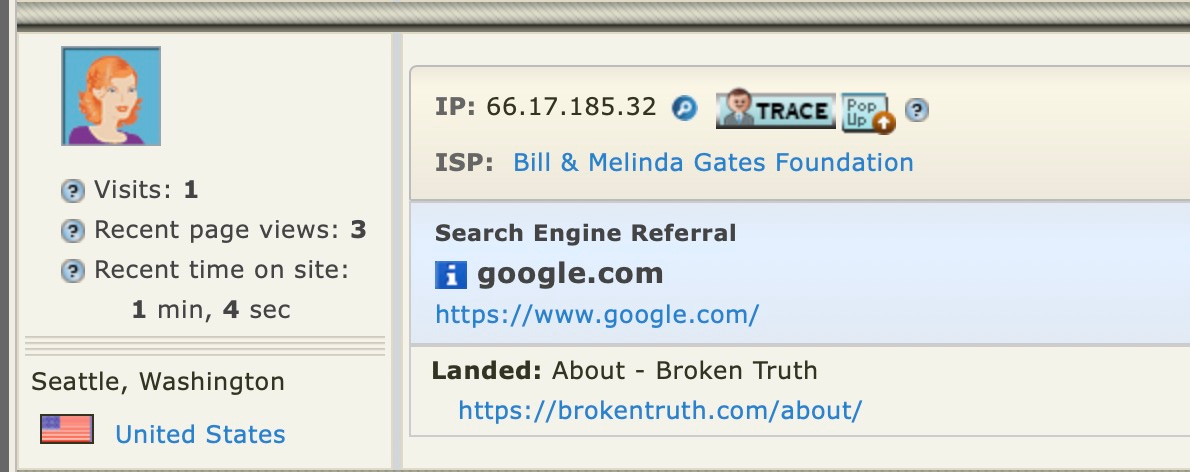
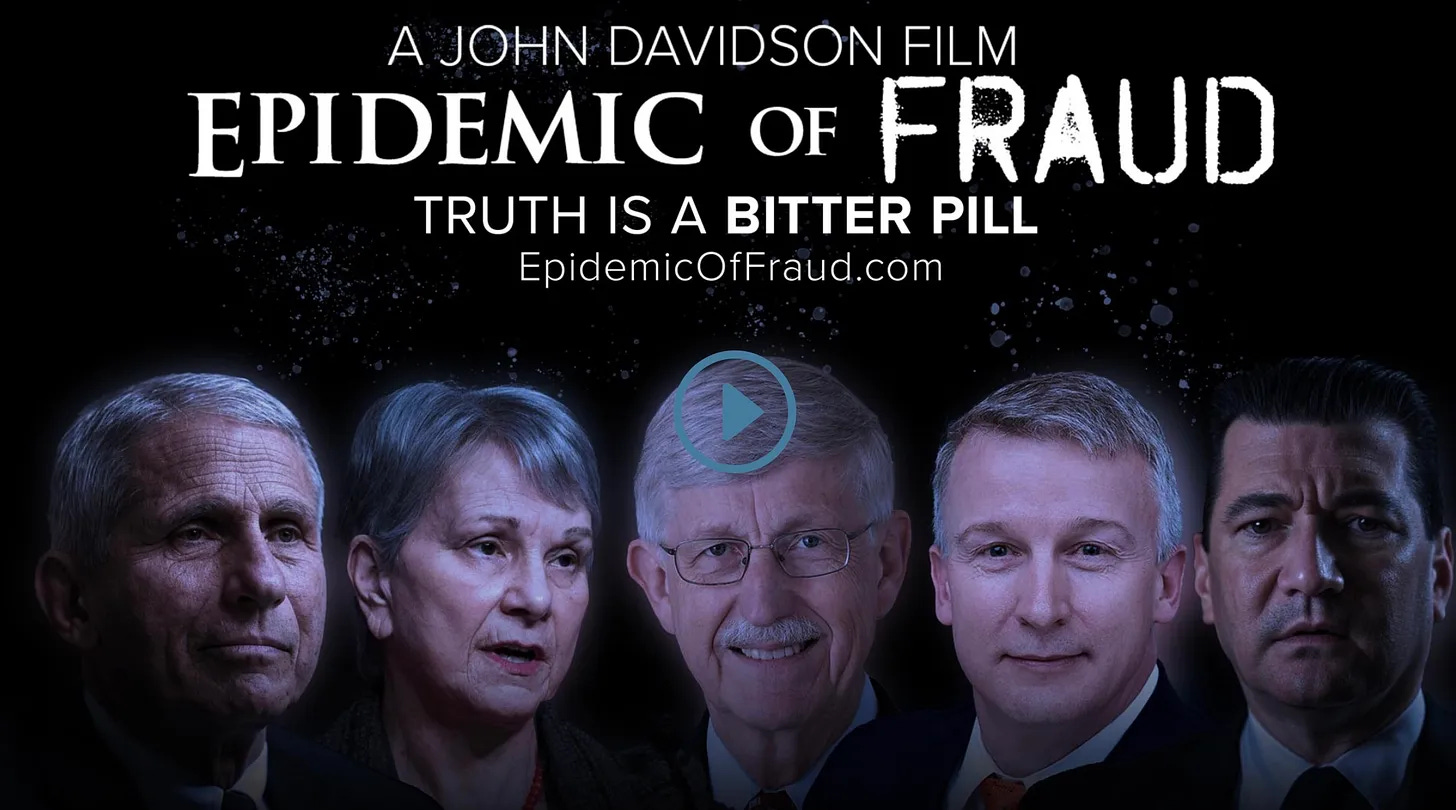
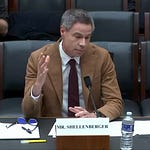
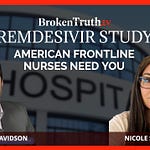





Share this post